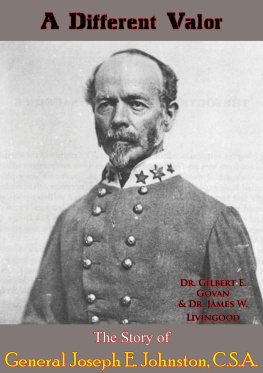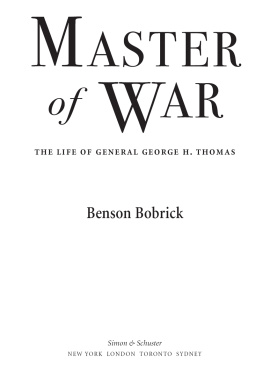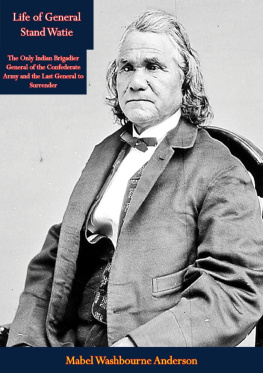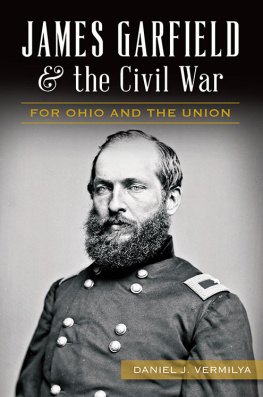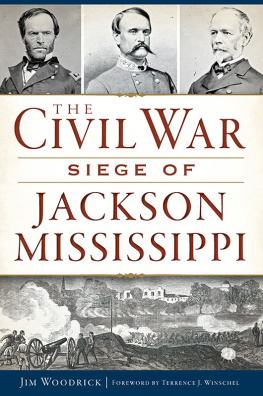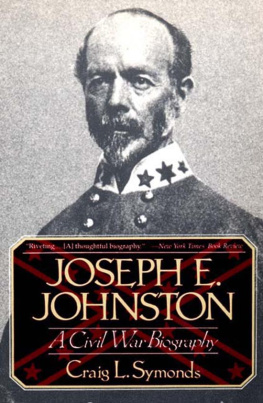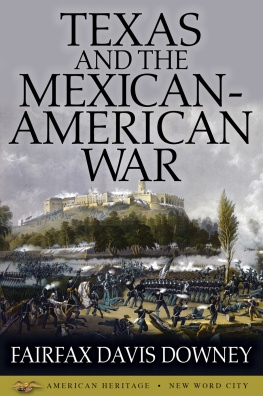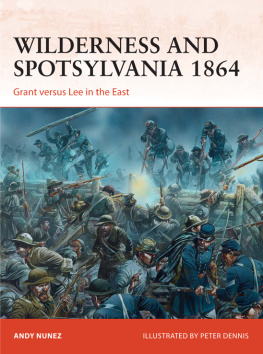

This edition is published by PICKLE PARTNERS PUBLISHINGwww.pp-publishing.com
To join our mailing list for new titles or for issues with our bookspicklepublishing@gmail.com
Or on Facebook
Text originally published in 1956 under the same title.
Pickle Partners Publishing 2016, all rights reserved. No part of this publication may be reproduced, stored in a retrieval system or transmitted by any means, electrical, mechanical or otherwise without the written permission of the copyright holder.
Publishers Note
Although in most cases we have retained the Authors original spelling and grammar to authentically reproduce the work of the Author and the original intent of such material, some additional notes and clarifications have been added for the modern readers benefit.
We have also made every effort to include all maps and illustrations of the original edition the limitations of formatting do not allow of including larger maps, we will upload as many of these maps as possible.
A DIFFERENT VALOR:
THE STORY OF GENERAL JOSEPH E. JOHNSTON, C.S.A.
BY
GILBERT E. GOVAN
AND
JAMES W. LIVINGOOD
TABLE OF CONTENTS
Contents
ACKNOWLEDGEMENTS
The authors acknowledge with thanks the permission graciously granted to them to quote material from books, periodicals and letters, as follows:
From A Southern Girl in 61 , by Louise Wigfall Wright. Copyrighted 1905 by Doubleday & Co., Inc.
From three letters from Joseph E. Johnston and eight letters from Louis T. Wigfall, reproduced by permission of The Huntington Library, San Marino, Calif.
From A Diary from Dixie , by Mary Boykin Chesnut. Copyright 1905, by D. Appleton & Co. Reprinted by permission of the publishers, Appleton-Century-Crofts, Inc.
From A Diary from Dixie , by Mary Boykin Chesnut (1949), ed. by Ben Ames Williams, Houghton Mifflin Co.
From General Kirby Smith , by A. H. Noll (1907), University Press of Sewanee, Tenn.
From Leonidas Polk , Bishop and General , by W. M. Polk (1915), Longmans, Green & Co., Inc.
From General Edmund Kirby Smith , C.S.A., by J. H. Parks (1954), and With Beauregard in Mexico, by P. G. T. Beauregard (1956), Louisiana State University Press.
From The Correspondence of Robert Toombs, Alexander H. Stephens and Howell Cobb, ed. by U. B. Phillips, The Annual Report of the American Historical Association for the Year 1911.
From Yours Till Death: Civil War Letters of John W. Cotton (1951), and The Civil War Diary of General Josiah Gorgas (1947), University of Alabama Press.
From Jefferson Davis, Constitutionalist: Letters, Papers and Speeches, ed. by Dunbar Rowland (1923), Department of Archives and History, State of Mississippi.
From A Sons Recollections of His Father, by W. W. Mackall (1930), E. P. Dutton and Co.
From The Railroads of the Confederacy , by R. C. Black III (1952); Two Soldiers: The Campaign Diaries of Thomas J. Key, C.S.A., and Robert J. Campbell, U.S.A., by W. A. Cate (1938); I Rode with Stonewall, by H. K. Douglas (1940); Stephen R. Mallory: Confederate Navy Chief, by J. T. Durkin (1954); James Longstreet, by H. J. Eckenrode and B. Conrad (1936); Joseph E. Brown and the Confederacy, by L. B. Hill (1939); and Pemberton, Defender of Vicksburg , by J. C. Pemberton (1942); University of North Carolina Press.
LIST OF MAPS
The Virginia Theater
First Manassas
The Peninsula
Seven Pines and Fair Oaks
The Western Theater
Vicksburg-Jackson Campaign
Dalton-Atlanta Campaign, First Phase
Dalton-Atlanta Campaign, Second Phase
The Last Campaign
CHAPTER ITHE MAKING OF A SOLDIER
On Monday morning April 22, 1861, Brigadier General Joseph E. Johnston, Quartermaster General of the United States Army, walked briskly along familiar Washington streets. His manner concealed the strain he had suffered for the past few days just as his pace denied his fifty-four years. Many of the thoroughfares along which he passed had a strange deserted appearance, some shops were closed and houses vacant, but the soldier didnt notice his surroundings as he made his way to the office of the Secretary of War. In his pocket he carried a letter which was the most important one he had ever written, and he was intent on its early delivery.
In the privacy of his home he had pondered long before making his decision. On Friday he knew definitely that his native state of Virginia had reacted to the guns of Fort Sumter by seceding from the Union. The next day he penned his letter, but the gravity of its contents along with unfinished official business preoccupied his entire weekend. Meanwhile, the city had been feverish with fear and tension as residents realized they were virtually ringed by rebellion, and guests departed before an effort might be made to capture the capitol.
Before entering the office of the Secretary, Johnston was joined by the Adjutant General who had agreed to accompany him. Simon Cameron had been in office for such a short time that he was scarcely accustomed to the formal salutes of the visitors who soon stood erectly before him. Johnston handed him the letter which the Secretary read carefully.
Sir: With feelings of deep regret I respectfully tender the resignation of my commission in the army of the United States. The feelings which impel me to this act are, I believe, understood by the Honorable Secretary of War. I hope that long service, with some labor, hardship, danger, and loss of blood, may give me claim to ask the early consideration of this communication.
Most respectfully, your obedient servant,
J. E. Johnston, Quartermaster General.
The Secretary was not surprised by the content of the letter. Strangely enough the administration thought there was nothing unusual in such resignations. Just two days before, Colonel Robert E. Lee had taken that step. Now, another of the most experienced and highly considered officers presented his. With all these things in mind Secretary Cameron expressed his sincere regret that Johnston thought it necessary and requested the Adjutant General prepare the proper orders immediately.
Joseph E. Johnston was the grandson of Peter Johnston, who emigrated from Scotland in 1727 to Virginia. A successful merchant, the elder Johnston moved from his first location on the James River to the Piedmont section of the colony shortly after the French and Indian War. His younger son, also named Peter, when only seventeen joined the legion of Light-Horse Harry Lee for the campaign in the Carolinas and served with it during the rest of the Revolution with such distinction that he became a favorite of his commander. This association laid the foundation for a friendship between the Johnston and Lee families which became even closer with the sons of the two Revolutionary soldiers.
In 1788 the younger Peter Johnston married Mary Wood, a niece of the fiery Virginia patriot, Patrick Henry, and the two made their home at the family farm in Prince Edward County, which Peter inherited at the death of his father. He developed an interest in politics and was a member of the State Assembly for thirteen terms, twice being chosen speaker of the House of Delegates. Prominent in the debates in which the issues of States rights first occurred, he stood with the majority in denying the Federal government the authority claimed in the Alien and Sedition Laws. A few years later he served on the commission which settled the boundary dispute between Tennessee and Virginia, and in 1811 he became a judge of the Virginia General Court.
Next page
